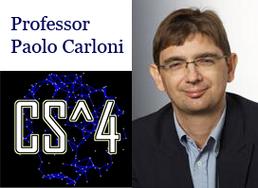Seminar 16th September 2011 2 p.m. 27/2001
Molecular simulations of proteins undergoing fibrillation in neurodegenerative diseases
Professor Paolo Carloni
German Research School, Julich Research Center and RWTH – University of Aachen, Germany
- Web page
- http://www.grs-sim.de/research/computational-biophysics/team/carloni.html
- Categories
- AMBER, Bioinformatics, Biomathematics, Biomolecular simulations, C, C++, CASTEP, Catalysis, Complex Systems, Computer Science, Density functional Theory, e-Research, FFT, Fortran, GPU, HECToR, HPC, Linux, Materials, Molecular Dynamics, Molecular Mechanics, Monte Carlo, MPI, Multi-physics, Multi-scale, Multigrid solvers, Pervasive computing, Scientific Computing, Software Engineering, Structural biology
- Submitter
- Chris-Kriton Skylaris
Many neurodegenerative diseases are associated with the accumulation of fibrillar proteins. The unifying features of a fibril formation is the structural transition from an initial globular or intrinsically disordered state to a ?-structural form. Here we will describe our recent effort, based on atomistic simulations, at understanding how the presence of ligands affect the structural stability of proteins undergoing fibrillation in Parkinson’s and Prion diseases. Our calculations may help identify compounds which might affect fibrillation as well as uncover the role of specific cellular partners for protein fibrillation.
Contact
Dr Chris-Kriton Skylaris
